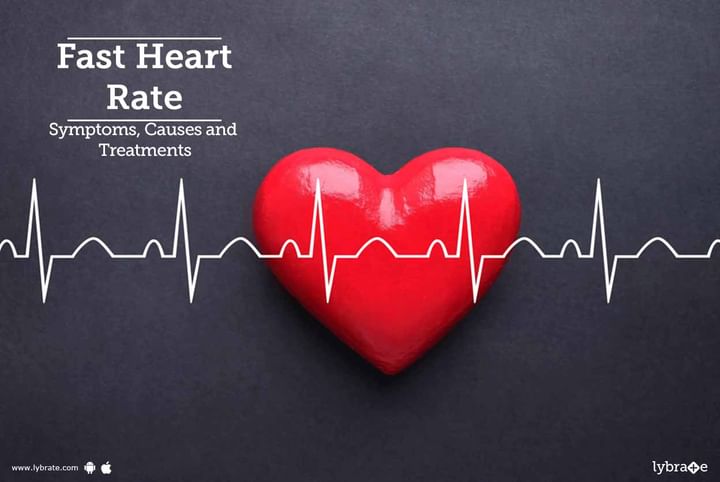Fast Heart Rate - Symptoms, Causes and Treatments
What is Tachycardia?
Tachycardia is the medical term for a fast heart rate. When a person’s heart beats more than 100 times per minute, he/she is said to be suffering from tachycardia. Atria and Ventricles (both left and right) are the four major parts of the heart. They contract and expand so that blood can be pumped out of the heart and oxygen reaches all the organs of the body. Now, this pumping occurs at a stable pace, owing to electrical impulses that activate the pumping in the first place. When an underlying medical condition or a defect in the heart disrupts these electrical impulses a person is confronted with tachycardia.
Symptoms
In many people, no symptoms are observed until and unless it is detected by a blood pressure device or a tool that checks the pulse rate. But if the heart rate is significantly high a person might feel dizzy, fatigued. He/she can also suffer from shortness of breath, palpitation as well as chest pain.
When the heart beats faster than usual the oxygen in the body gets depleted, which can result in the death of myocardial cells, leading to heart attack.
Causes
Heart diseases like coronary artery disease, heart valve disease, heart muscle disease, tumors or infection can lead to increased rate of heart beat. Apart from that, other conditions that might lead to tachycardia are: stress, hormonal disorders, especially in case one is suffering from hyperthyroidism, blood loss etc.
Treatment
Medications
- If there is an underlying medical defect that is causing the increased heart rate in the first place, it needs to be treated. For example, if a person is suffering from hypothyroidism then medicines are prescribed to regulate the function of the thyroid glands.
- If tachycardia develops as a result of weakened heart muscle then medicines are given to strengthen the heart.
- Beta blockers are given to check the defective electrical impulse in the heart, if that is the cause of tachycardia. Depending on the condition of the patient anti-arrhythmic medicines might also be given.
- People who stand at a risk of receiving a stroke as a result of this condition are prescribed warfarin.
Surgery and Implantation
Implantable cardioverter defibrillator
This procedure involves the insertion of an artificial device in the heart that controls the heart rate. It is equipped to send an electrical shock whenever it detects defective electrical impulse in the heart. In other words, it is designed to mechanically deflect the erroneous impulse.
Surgery
If medications fail to rectify the disorder, a surgery has to be performed. In this case, a section of the heart tissue is removed through operation. The scar that is left by the operation controls defective electrical impulse as a scar tissue is affirmed to be a bad conductor of electricity.



+1.svg)
